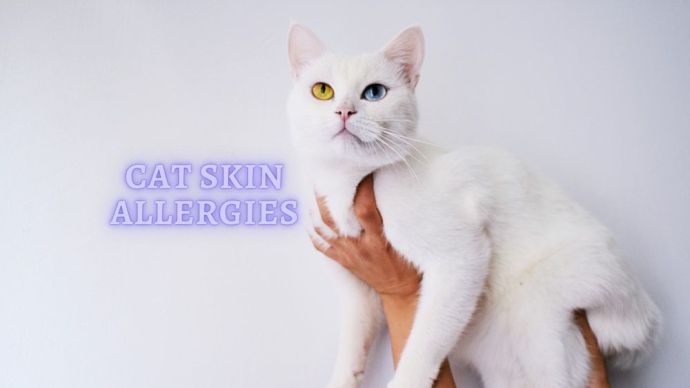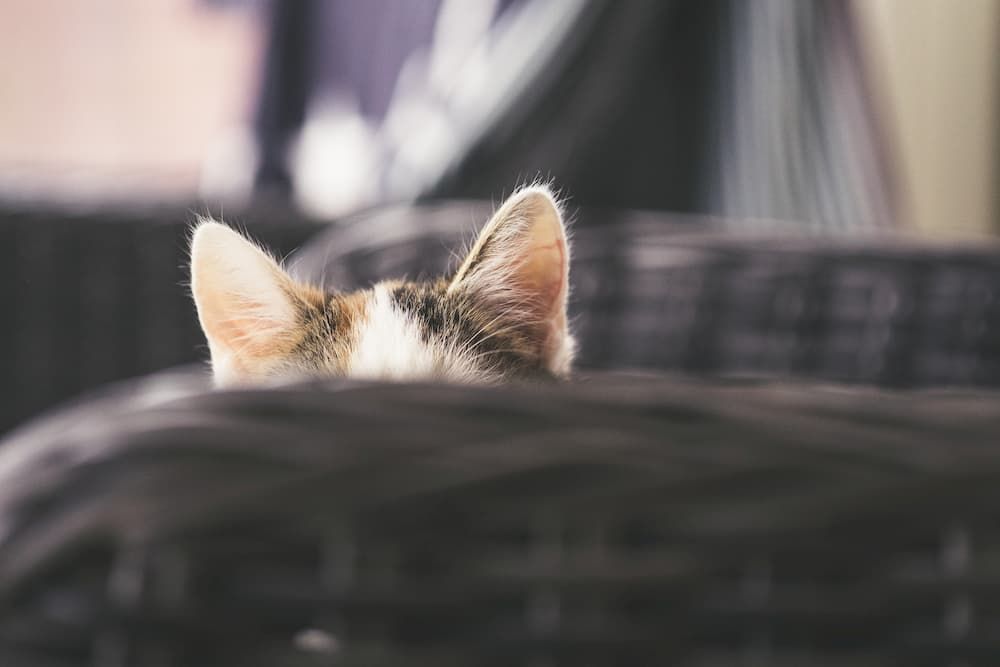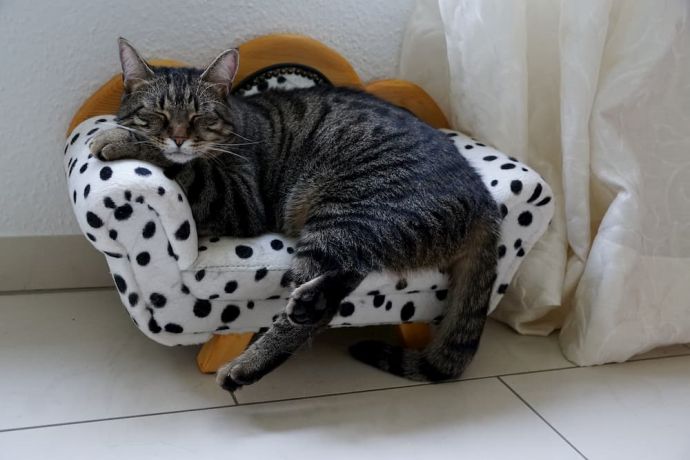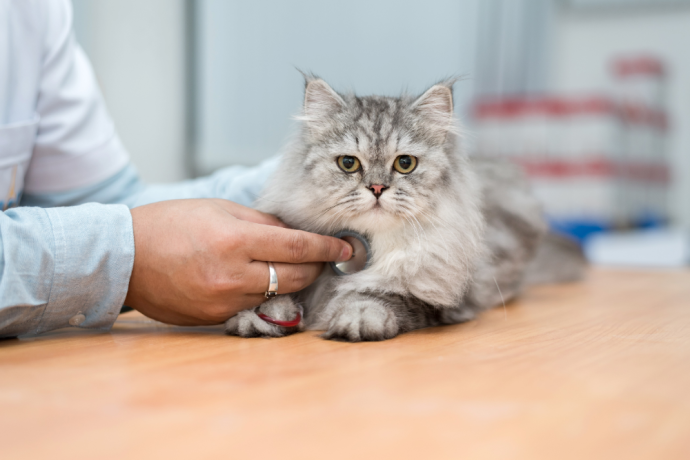Does my Cat have an Ear Infection?
Written by:
Author: Dr. Kathryn Dench
Dr. Kathryn Dench is an experience veterinary with over 10 years' experience in small animal and exotic pet medicine. Kate qualified from Cambridge University Veterinary School in 2007. Kate has worked in a number of veterinary practices in the UK. She has extensive experience in the medical care of pet species, from dogs and cats to chickens and chameleons! In free time, Kate writes pet advice in order to ensure that owners are receiving the best possible information on how to care for their pets.
View all 9 articlesLearn about our editorial process and veterinary review board.
Viewed: 245
Updated on: 06/25/2021
Ear infections can happen to any of our pets, and, as those of us who have experienced ear infections ourselves know, can be very distressing. But how do we know for sure if our feline friend has an disease of the hearing organs – and what should we do about it? In this article, we explore the topic of disease of the hearing organs in cats in more detail.
What is an Ear Infection?
An ear infection develops when bacteria or yeast set up home in the canal and start causing a problem. A disease of the hearing organs n can be very painful and distracting for your cat, making them very uncomfortable and unable to enjoy life.
As with any infection, your cat’s body will attack the bacteria or yeast with an immune response. Unfortunately, in the case of disease of the hearing organs, this is rarely effective at getting rid of the problem. If the infection gets serious, it can lead to the drum’s rupture, and the infection can spread inwards to the middle ear. Without treatment, infections can lead to permanent deafness and facial paralysis.
Why do Cats get Ear Infections?
Ear infections are complicated and often frustrating to deal with. Having an understanding of why they occur, and why they can sometimes be so hard to treat, can help us.
In simple terms, the actual cause of disease of the hearing organs are the microbes that actually cause the disease, like bacteria and yeast. Some of these may even live in the ear canal quite harmlessly most of the time, but when the conditions of the ear change, they can reproduce too much and start causing a problem.
So the broader answer to why cats get infections relate to predisposing factors. These are things that make the animal prone to getting an disease of the hearing organs. These can include things that make the canal more susceptible to infection, such as being incredibly narrow or tending to have a lot of ear wax.
Underlying allergies are a big predisposing factor for infections, as skin allergy symptoms are exacerbated in the warm, moist canal and can invite bacteria to set up home. Similarly, ear mites can irritate the canals and make them more prone to developing infections. A suppressed immune system can also make an animal more likely to get an infection and make it harder to clear once an infection is established.
READ MORE: Cat Eye Injuries
How can I tell if my Cat Has an Ear Infection?
It is not always easy to tell if your cat has an disease of the hearing organs. Here are some of the symptoms you might notice in your cat:
- Scratching
- Shaking the head
- Bad smell
- Painful
- Aggressive or grumpy
- Withdrawn and quiet
If your cat is shaking their head or scratching their ears, it might give you a good indication that the problem. But not all cats with diseases of the hearing organs show these behaviors: some are just quiet or grumpy. It may not be clear what the problem is, because a range of medical conditions can cause your cat to be withdrawn. It is important not to write off your cat’s behavior as being nothing to worry about, especially if it is out of character for them, lasts more than a day or two, or seems to be getting worse.
If you notice any of the symptoms above, the best thing you can do for your cat is to arrange a veterinary appointment as soon as possible. The quicker your cat’s problem is diagnosed and treated, the quicker and easier they will recover.
READ MORE: How to help my Cat in Heat
How do I tell the difference between an Ear Infection and Ear mites in my Cat?
It is not always easy to tell the difference between an infection and ear mites – and sometimes cats have both at once! In general, ear mites are itchier and infections are more smelly, but for proper diagnosis, you will need your vet to check your cat’s ears with an otoscope. By looking down the canal, your vet will be able to see if mites are walking around in there, or whether the problem is pus and irritation in the ear canal, suggesting an disease of the hearing organs.
Is it possible to treat a Cat’s Ear Infection at home?
It is NOT a good idea to treat an ear infection without having a vet check first. There are a few important reasons for this.
- Firstly, there are a number of causes of problems in cats, which can have similar symptoms, so unless you are certain what your feline friend’s problem is you may be using the wrong treatment.
- Secondly, if the eardrum has burst because of the infection, any medication you put into the canal will enter the middle ear and might cause serious, permanent damage to your cat.
- Thirdly, liquid medications have a limited shelf life once they have been opened. After this time, bacteria may begin to grow in the bottle, and by pouring them in your cat’s ears you might be making the problem worse!
So always get your cat checked and use the medication your vet recommends.
How long should treatment be?
The length of a course of treatment will depend on what kind of infection your cat has. Your vet will give you an initial course of medication that you must complete even if your cat improves quickly and seems better. If your cat is still showing some symptoms at the end of your treatment course, take them back to the vet for a re-check before the medicines run out. If the infection hasn’t cleared yet, it’s much more effective to continue the medications rather than have a gap and give the infection opportunity to take hold again.
What can I do to prevent my Cat from Getting Ear Infections?
We can take several steps to help prevent our cats from getting infections, and these are aimed at addressing the predisposing factors we mentioned earlier.
Routine parasite control
As ear mites can be a predisposing factor for ear infections, keeping up with regular parasite treatments can help your cat eliminate this factor. Some routine flea treatments also deal with ear mites, so check with your veterinary clinic for the available options in your area.
Ear cleaning schedule
If your cat has a problem with excessive ear wax, they may benefit from regular ear cleaning. However, this process can be stressful for cats, and sometimes the act of cleaning the ear can irritate the ear canal, so it is recommended that you check with your veterinarian for their advice before starting an ear cleaning routine with your cat.
Maintaining good general health
A cat who has a good diet, adequate exercise, minimal stress, and maintaining a good body weight has the best chance of having a good immune system and keeping themselves well-groomed, all of which help them keep infections at bay.
 Cat Veterinary Tips Skin Allergies in Cats: Causes, Symptoms, and Treatment (Vet Advice)
Cat Veterinary Tips Skin Allergies in Cats: Causes, Symptoms, and Treatment (Vet Advice) - 513
- 0
 Cat Veterinary Tips Cat Stomach Gurgling: Vet Advice on Why is Your Cat Stomach Gurgling?
Cat Veterinary Tips Cat Stomach Gurgling: Vet Advice on Why is Your Cat Stomach Gurgling? - 35340
- 4
 Cat Veterinary Tips Distemper in Cats: What is Feline Panleukopenia? Causes, Signs, Diagnosis and Treatment
Cat Veterinary Tips Distemper in Cats: What is Feline Panleukopenia? Causes, Signs, Diagnosis and Treatment - 224
- 0
 Cat Care Why Does My Cat Attack My Legs? 10 Reasons Why and What To Do About It (Vet-Approved Advice)
Cat Care Why Does My Cat Attack My Legs? 10 Reasons Why and What To Do About It (Vet-Approved Advice) - 45566
- 21
 Cat Veterinary Tips Cat Stomach Gurgling: Vet Advice on Why is Your Cat Stomach Gurgling?
Cat Veterinary Tips Cat Stomach Gurgling: Vet Advice on Why is Your Cat Stomach Gurgling? - 35340
- 4
 Cat Veterinary Tips My Cat Lost its Voice: Can Cats get Laryngitis? (Vet Advice)
Cat Veterinary Tips My Cat Lost its Voice: Can Cats get Laryngitis? (Vet Advice) - 23247
- 13























